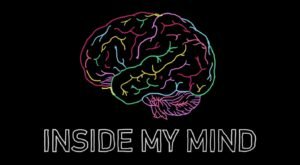
Article was specially written for insidemymind.me by Avery Conner
“Criminal behavior” is an incredibly broad term. It’s generally defined as any unlawful act or behavior as put forward by a country’s legal system. But given that acts can be interpreted in different ways, law enforcement entities and courts can make different decisions, and so on, it is challenging to discuss criminal behavior in an overarching manner. Similarly, one reason criminal behavior is so difficult for us to actually deal with as a society is that it can stem from so many different things; there is not one root cause or trigger.
With that in mind, this post is going to examine some of the most popular causes of criminal behavior (though this is not an exhaustive list, and there may in fact not be such a thing).
Certain Personality Traits
There are quite a few personality traits that psychologists and law enforcement officers look at when trying to determine if a person is prone to repeating criminal behavior. Anti-societal values, association with criminal peers, antisocial personality, dysfunction within family, a lack of self-control, and a tendency toward substance abuse (which we’ll look at in more detail below) are all considered among the traits that can lead to criminal behavior. Of course, these traits don’t necessarily lead to crimes. But they are warning signs, and grounds for psychiatric care.
Environment & Surroundings
There is overlap between some of what we listed with regard to personality traits and environmental factors. A dysfunctional family or a community of criminal peers, for instance, can certainly lead an individual toward criminal activity. So too can a neighborhood or environment in which people are overlooked or unduly disadvantaged. The issue of environmental cause is ultimately one we address primarily through law enforcement and criminal justice –– but this doesn’t (and shouldn’t) just mean police. A background in criminal justice today can lead to any number of jobs relating to the security and safety of our society. Careers such as computer forensics investigators, DEA agents, corrections officers, and even social workers exist in part to keep our neighborhoods and environments safe, discouraging and correcting criminal behavior.
Drug Abuse
Drug abuse is a slippery slope. As a person begins to abuse illegal substances, addictive personality traits take hold. Impulsive behavior, compulsive habits, a lack of patience or increase in irritability, and denial are common issues alongside drug abuse. And unfortunately, these traits and changes make some individuals more likely to commit crimes. Depending on the person’s situation, however, there are a number of ways to help. If mental illness is suspected as an underlying factor, psychological and psychiatric help are the first steps. Social work programs in the area are also great for educating and rehabilitating abusers, ideally reincorporating them into society in healthy, manageable ways before too much damage is done.
Social Influence
You may have seen the assertion in a previous blog post here that Facebook is a disease. One could argue this point for a number of reasons, but one is certainly that Facebook and other social networks hold massive influence over how some users come to see the world. While it’s not usually the case that social media or influencers directly cause crime, there are plenty of indications that social networks can bring out the worst in people and ultimately lead to criminal actions. For situations like this, we don’t yet have clear solutions in place –– but it’s clear that there is a need for greater media literacy training, at the very least. Teaching children how to use social media responsibly –– and how to recognize manipulative information and individuals –– is a good start. Social media platforms also need to take responsibility, and in some cases do better to enforce rules and protect users.
Local Unemployment and Personal Need
In some cases, criminal behavior isn’t something a person wants to do, but rather something born out of need. A person struggling to afford food is more likely to attempt to shoplift groceries or other necessities, for instance. Someone living in an area with high unemployment may be more likely to face financial stress, and thus more likely to commit a related crime. Social programs and work opportunities are going to be the most impactful solutions for situations like these, though the reality is that the desperation unemployment and personal need can inflict on individuals is a larger problem than any one program or method can solve.
Criminal behavior is a difficult topic to deal, with since it spans backgrounds and situations, and has so many root causes. Nevertheless, when we hone in on those causes, it becomes clearer that there are steps that can be taken to mitigate crime.

![[Guest Writer] My Thoughts On Afghanistan As A Member Of The US Military](http://cdn.insidemymind.me/wp-content/uploads/2021/08/18151953/US-military-218x150.jpeg)